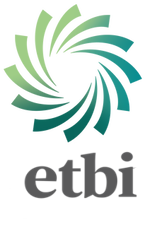This page outlines the various Higher Education Institutions in Ireland- including universities, Its, private institutions etc.
The higher education or third level sector in Ireland is comprised of universities, institutes of technology and teacher training colleges (colleges of education), together with some non-state-aided private/independent colleges.
Universities:
There are 8 universities in the Republic of Ireland
National University of Ireland Galway
Each of the universities offer degree programmes at Bachelor, Postgraduate Diploma, Masters, and Doctorate level in a range of disciplines.
The universities undertake research at many levels and are also involved in continuing and distance education.
More information on higher education institutions in Ireland is available from The Higher Education Authority: www.hea.ie
To explore courses see: www.qualifax.ie and www.careersportal.ie
Note- Technological University Dublin (TU Dublin, formally DIT) is Ireland’s first Technological University, offering a unique range of programmes and disciplines, with pathways to graduation from foundation and apprenticeship to undergraduate and doctoral levels.
Institutes of Technology:
There are 11 Institutes of Technology (IoTs) in the Republic of Ireland, represented by the Technological Higher Education Association
Athlone Institute of Technology (AIT)
Cork Institute of Technology (CIT)
Dundalk Institute of Technology ( DKIT)
Dun Laoghaire Institute of Art, Design and Technology (IADT)
Galway-Mayo Institute of Technology (GMIT)
Letterkenny Institute of Technology (LYIT)
Limerick Institute of Technology (LIT)
Institute of Technology, Carlow ( IT Carlow)
Institute of Technology, Sligo (IT Sligo)
Institute of Technology, Tralee (ITT)
Waterford Institute of Technology (WIT)
The Institutes of Technology provide courses in a wide range of disciplines including science, engineering, technology, business, humanities, languages, healthcare, art and design, tourism, agriculture and horticulture at both undergraduate and postgraduate level.
The Institutes of Technology operate a unique system which allows students to progress from two year Higher Certificate programmes (NFQ Level 6 /Associate Degree equivalent programmes) to Ordinary degree (NFQ Level 7 ) and Honours degree ( NFQ Level 8 ) level.
The Institutes of Technology also offer courses at postgraduate level, including Postgraduate Diploma, Masters and PhD programmes.
For more information on Institutes of Technology see:
http://www.thea.ie/facts-and-stats/
http://www.educationinireland.com/en/Where-can-I-study-/
Independent / Private Colleges:
There are a number of independent private institutions in Ireland which offer a range of programmes in areas such as accountancy, art, business studies, hotel and catering, humanities, law, medicine, primary teaching etc. Many of the programmes offered by these colleges are validated by QQI (www.qqi.ie)
For a list of independent colleges accredited by QQI, see the International Education of Ireland website.
Some colleges have links to universities in Ireland and overseas through which accreditation is awarded.
Remember that tuition fees must be paid by EU citizens in all independent / private colleges. Tuition fees vary from college to college.
http://www.educationinireland.com/en/Where-can-I-study-/
Post-Graduate Courses:
There is a large range of post-graduate courses and research opportunities available in the third level sector in Ireland. Courses are offered on a full and part-time basis with options for distance learning being offered by some institutions.
Graduate Diplomas can be taught or research based, full or part time, or delivered through distance learning. The time requirements will depend on which option you choose. A taught graduate diploma undertaken on a full time basis normally takes one year.
- A Master’s Degree can be taught or research based, full or part time or distance learning.
- A taught master’s degree undertaken on a full-time basis normally takes 1 to 2 years.
- A Doctorate Degree is research based and normally requires a full-time commitment of at least three years.
Most postgraduate courses require the applicant holds a primary degree. Entry is competitive and applicants will need to provide evidence of academic achievement if they are to secure a place.
Some programmes will require direct application to the college, others will require application through a centralised application system to the Postgraduate Applications Centre – www.pac.ie
Please check with your chosen college to determine means of application.
As a postgraduate student you can expect to pay fees unless you are eligible for a grant. The fees vary between courses and between institutions. For information regarding costs intending candidates should contact the relevant third level institutions.
For more information and lists of courses available see:

